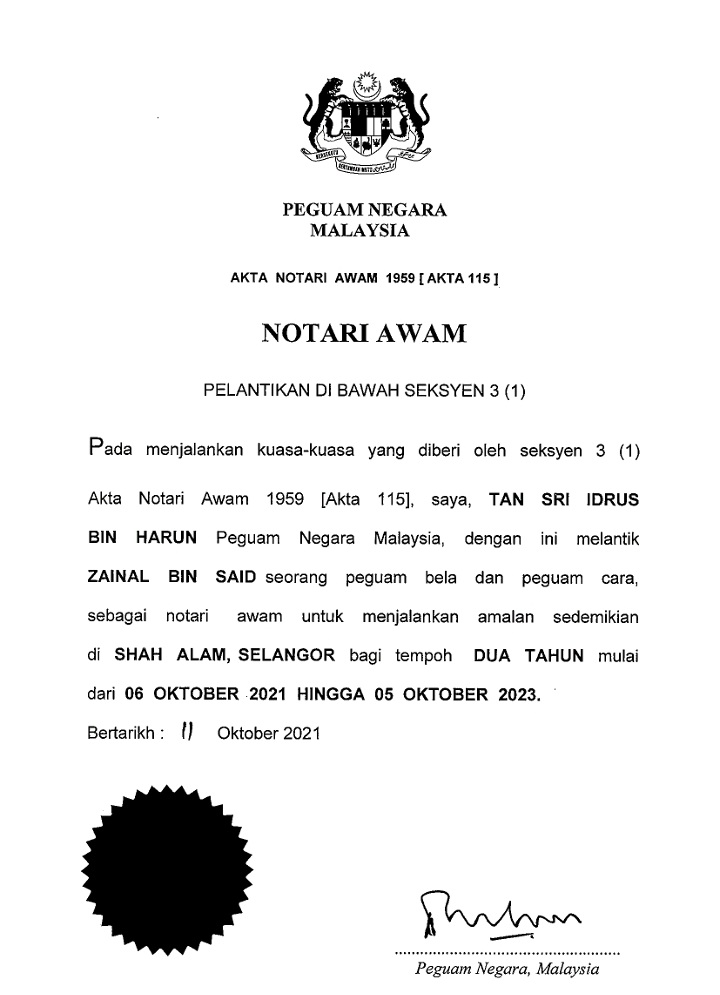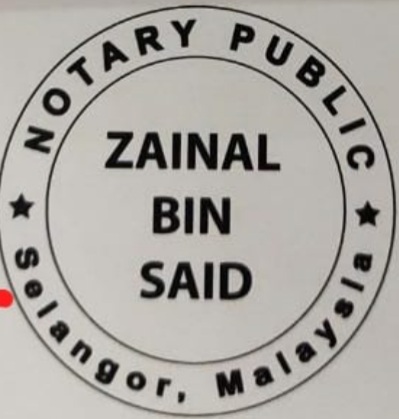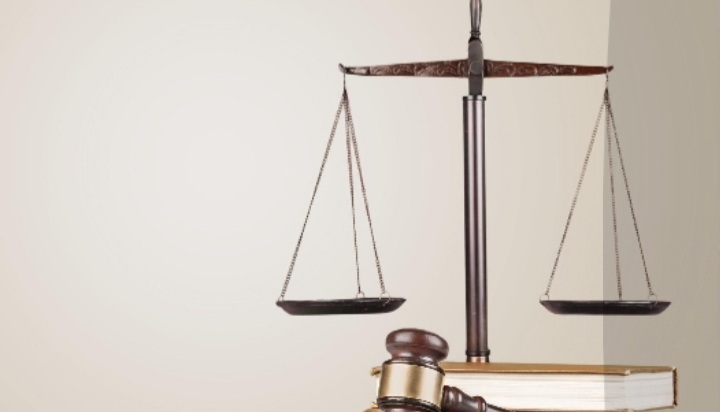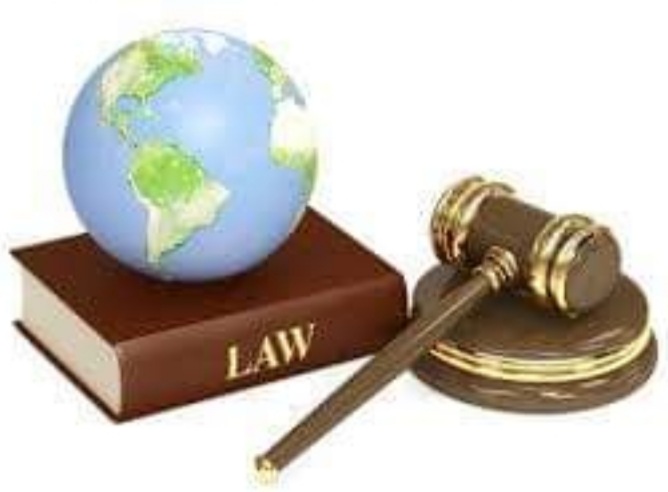
Notary Public Malaysia
More Than Your Average Notary Public
At our Notary Public’s specialization we deliver outstanding results across 3 key services areas : attestation, notarization and certification.
Certification

We certify true copy any documents including passports, identity documents, birth certificate, marriage certificate, academic transcript, bank statement, proof of address vide utility bills and any other relevant documents
Notarization

Our Notarization is basically the process of giving (anyone who asks for it like a company or a branch of a government) that a document that is related to the person is reliable and veritable. Documents are notarized when giving a power of attorney, consent for a minor to travel abroad, and other transactions.
Attestation

We authenticate and attest documents including the issuance of Notarial Certificate or Form of Authentication and any other related documents
About

Messrs. Zainal Said & Associates is a law firm registered with the Malaysian Bar Council, a professional body that regulates the legal profession in Peninsular Malaysia.
To meet the entry requirements for the Malaysian Bar Council, the law firm Zainal Said & Associates and its lawyers have met the academic, practical, and formal qualifications prescribed by the Legal Profession Act 1976, an act related to the Malaysian legal profession.
Law Firm Information
Address: AA1/44-A, Block E, Jalan Plumbum AA7/AA, Pusat Komersial Seksyen 7, 40000 Shah Alam, Selangor Darul Ehsan. MALAYSIA
Email: zainalsaidlaw@yahoo.com
Phone: +603-5511 3343 / +603-5523 3527
Fax: +603-5511 3340
Mobile No.: +6012-276 5269
+6010-214 7696
Websites :
notarypublicmalaysia.wordpress.com
zainalsaidlaw.wordpress.com
Get in Touch
Reach out so we can work together to drive more customers to your products and services.
zainalsaidlaw@yahoo.com
Messrs. ZAINAL SAID & ASSOCIATES
Shah Alam, Selangor Darul Ehsan. MALAYSIA.
HP.: +6012-276 5269 / +6010-214 7696
Office : +603-5511 3343 /
+603-5523 3527
Website : notarypublicmalaysia.wordpress.com
Fax : +603-5511 3340
Opening Hours
- Mon
- 9:00 am – 5:30 pm
- Tue
- 9:00 am – 5:30 pm
- Wed
- 9:00 am – 5:30 pm
- Thu
- 9:00 am – 5:30 pm
- Fri
- 9:00 am – 5:30 pm
- Sat
- 9:00 am – 2:00 pm
- Sun
- Closed
Saturday & Sunday : BY APPOINTMENT
The powers of notaries public in Malaysia are governed by the Notaries Public Act 1959. Section 4 of the Act says :
- A Notary public in Malaysia has the same powers and functions as a notary public in England;
- A notary public may administer oaths and affirmations for affidavits and statutory declarations:
- for proving the due execution of any document;
- for matters pertaining to a sea vessel;
- for the purpose of being used in any place or court outside Malaysia.
A Notary public’s powers in Malaysia do not extend to administering or affirming any affidavit or statutory declaration which is executed for the purpose of being used in any court or place in Malaysia, or to take or attest any such affidavit or statutory declaration. (Instead, the services of a Commissioner for Oaths should be sought.)
(a) What is a Notary Public ?
A Notary Public is a person appointed by the Attorney General pursuant to the Notary Public Act, 1959. Typically, a Notary Public is an Advocate and Solicitor who has practiced law for not less than 15 years.
(b) What are the duties / responsibilities of a Notary Public ?
Under the Notary Public Act, 1959 the powers and functions of Notaries Public are the same as those of Notaries Public in England where the main function is to certify and prove documents to be used abroad (outside Malaysia) because Notaries Public are internationally recognized. In short, a Notary Public can be a witness on any execution of the agreement/correspondence;
certify the statement/certified true copy of any document including passport, identity document, birth certificate, marriage certificate, academic transcript, bank statement, proof of utility bill vide payment instrument; certify and receive documentary evidence including the issuance of a Certificate of Confirmation;
administer any oath or affirmation on any affidavit or statutory certificate for use in any court or place outside However, an important exception to what a Notary Public may do is to administer any oath and affirmation for use in any court in Malaysia.
(c) What is the difference between a Notary Public and a Commissioner for Oaths in Malaysia ?
Powers of Notaries Public and Commissioner for Oaths, for example; what each can do is based on different statutes in Malaysia. The Notary Public derives its powers from the Notary Public Act, 1959 while the Commissioner for Oaths is empowered under the Commission for Commissioners of Oaths Rules 2018 under the Courts of Justice Act, 1964.
In short, a Notary Public can certify / witness any document for overseas use (outside Malaysia) and has broader powers such as the power to witness the execution of the agreement and certify a valid copy of the original document. An interesting exception to documents used abroad is that Notaries Public can witness the execution of forms under the National Land Code 1965 which are documents used in Malaysia.
On the other hand, the Commissioner for Oaths is prohibited from being a witness or certifying a valid copy of any document. The Commissioner for Oaths can certify documents to be used in Malaysia only. Examples of the types of documents that can be witnessed by the Commissioner for Oaths are affidavits used in Malaysian courts, statutory declarations under the Statutory Declarations Act, 1960, Form A under Sub section 3 (1) of the Small Estates (Distribution) Act, 1955, Powers Lawyers under the Power of Attorney Act, 1949 and Proof of Debt (Form 55 under Rules 78-81 of the Companies (Winding Up) Rules, 1972).
(d) Can an Advocate and Solicitor witness the execution of a person and certify a certified true copy ?
Yes, Advocates and Solicitors can legally witness the execution of a person and certify a certified true copy of any original document. However, whether being a witness yourself and certifying a true copy is admissible or not, it will be determined by the authority you are dealing with. In most cases, the Ministry of Foreign Affairs, Malaysia and the embassy will require a Notary Public to do so instead of as an Advocate and Solicitor.
(e) Can a Notary Public use a backdate for verification on any document ?
No. Notaries Public are not allowed to use the elapsed date for any document verification. The Notary Public must follow the current date and it must be the same date as when a person signed the document in the presence of the Notary Public.
(f) Can a Notary Public certify any document that has been signed without the presence of the signatory?
No. The person must be present in person and sign the documents in the presence of a Notary Public.
(g) Can a Notary Public go to my hospital or office / home to certify, witness and or support any document ?
All supporting documents, certifications or endorsements must be carried out at our official office address. Any place other than our official office address is subject to approval on a case basis and additional travel or service charges may be imposed accordingly.
(h) Do I need to be present at your office for document verification ?
You will be required to attend in person when the documents to be certified are signed by yourself and the Notary Public will have to witness the signing of the documents by the signatory. However, you can send it to someone else if you only need a certified true copy for verification. To certify a copy of the actual document, all original documents must be submitted to a Notary Public for verification. In any case, whether you attend in person or send someone else on your behalf, that person is required to provide their identity card / passport for our records.
(i) Can documents be verified electronically ?
No, because it is quite impossible to authenticate documents digitally. In Malaysia, all documents must be in physical form (ie paper) to be certified. We will affix our red seal, address stamp and notary stamp on the document. However, after that, you can “pdf” digitally and scan the certified document.
(j) Can a Notary Public certify a certified copy of an online digital bank statement or utility bill ?
Yes, we can verify the same copy provided you should and can access your bank statements and bills electronically using your mobile phone or our computer so that we can verify that the printed copy matches the original digital copy.
(k) Can a Notary Public issue an “Apostille Certificate” ?
No, we can’t. This is because Malaysia is not a signatory to the “Apostille Convention” or the “Apostille Treaty”. Therefore, Notaries Public in Malaysia cannot issue any “Apostille Certificate”.
(k) Can a Notary Public recommend/give an opinion on the needs of the Ministry of Foreign Affairs, Malaysia, embassies, foreign universities and relevant authorities ?
No, we can’t. Instead, we advise you to ascertain for yourself what the requirements are with the Ministry of Foreign Affairs, Malaysia, embassies, foreign universities and relevant authorities.
(l) I have signed the documents that need to be witnessed. Can my documents still be verified ?
Your document can still be certified but you will need to re -sign it in the presence of a Notary Public. To avoid confusion, you can reprint the document so that it will be signed and witnessed at the same time.
(m) Does my document need to be in English or can it be in another language ?
The writing language on your document is required to be written based on the differences from a country. If a Notary Public is required to confirm that you have understood the contents of a particular document, the document needs to be officially translated into English through a court interpreter.
(n) If two (2) or more people sign one (1) declaration / document, should it be signed at the same time ?
Generally, everyone who signs a declaration / document must appear before a Notary Public and sign the declaration / document at the same time. However, if there is a separation of spaces for witnesses to be stamped, then the marker may sign on a different date. Therefore, the witness space will contain different dates depending on when the person signed in the presence of a Notary Public.
(o) What should I bring when I meet with a Notary Public ?
In addition to the documents you need for the Notary Public for verification and the original documents to verify the true copy, please bring your original identity document such as a passport or identity card.
Who May Take Oaths Before A Notary Public
Section 6(1) of the Oaths and Affirmations Act 1949 provides that oaths shall be taken by:
- Witnesses, i.e. all persons who may be lawfully examined, or give or be required to give evidence, by or before any court or person having authority to examine such person or to receive evidence;
- Interpreters of questions put to and of evidence given by witnesses;
- Translators; and
- Jurors.
Section 7 of the Oaths and Affirmations Act 1949 provides that any person required to take an oath under any other written law shall be deemed to have complied if s/he makes an affirmation.
*Commissioner for Oaths and Notary Public
The Notary Public and the Commissioner for Oaths are two professionals who show the differences between them in relation to their functions and duties. We must understand the difference between a commissioner of oaths and a notary public.
The commissioner of oaths shall be an officer of the court who may administer the oath to ensure that the person speaks the truth during the court proceedings. He was appointed by the court. In short, a commissioner of oaths is a solicitor authorized to administer an oath to a person making an affidavit.
On the other hand, a notary public is a person authorized to perform certain legal formalities primarily to make or certify contracts, deeds and so on. The notary public can sign the signature for the document.
One of the main differences between a commissioner of oaths and a notary public is that although both are authorized government officials, a notary public is empowered to certify while a commissioner of oaths is authorized to administer oaths or to verify the truth behind statements made in filed affidavits by someone.
It is generally believed that the job of a notary public is easier when compared to the job of a commissioner of oaths. This is due to the fact that the commissioner of oaths is expected to enter the details of the affidavit and to verify the validity of the statements made therein.
The Powers of a Notary Public in England
A notary public in Malaysia has the same powers as a notary public in England, by section 4 of the Notaries Public Act 1959. What are these powers? The following information is based on Vol. 31, Halsbury’s Statutes of England and Wales (4th Edition), Butterworth & Co. 1987. A certified notary public in England is able to:
- Draw or prepare any instrument relating to real or personal estate, or legal proceedings;
- Draw or prepare any instrument or charge under the Land Registration Act 1925;
- Take instructions for or to draw or prepare any papers on which to found or oppose a grant of probate or of letters of administration;
- Take declarations concerning actions or intended actions for debt or accounts brought outside the United Kingdom within the dominions of the Crown, or concerning property situated in such dominions;
- Take declaration of an attesting witness to prove the execution of any will or codicil, deed or instrument in writing;
- Take declarations, oaths and affidavits relating to stamps;
- Exercise the powers of a commissioner for oaths (if the notary public is in London);
- Prepare deeds and documents to take effect in the overseas dominions of the Crown or in foreign countries;
- Verify and authenticate execution of deeds, documents, contracts and powers of attorney;
- Authenticate and verify examined copies of documents;
- Prepare bottomry and respondentia bonds, average agreements and other mercantile agreements;
- Translate and verfy documents from English into a foreign language and vice versa;
- Draw foreign bonds and debenture stock;
- Act as commissioner for oaths under Commissions granted by Commonwealth or foreign authorities;
- In relation to bills of exchange: (a) present inland or foreign bills of exchange for acceptance or payment; (b) note and protest bills in cases of dishonour; (c) prepare acts of honour;
- Prepare “ship’s protest” and protest concerning demurrage and other commercial documents.
Affidavits sworn before a notary public and instruments authenticated by him are receivable as evidence in foreign courts.










